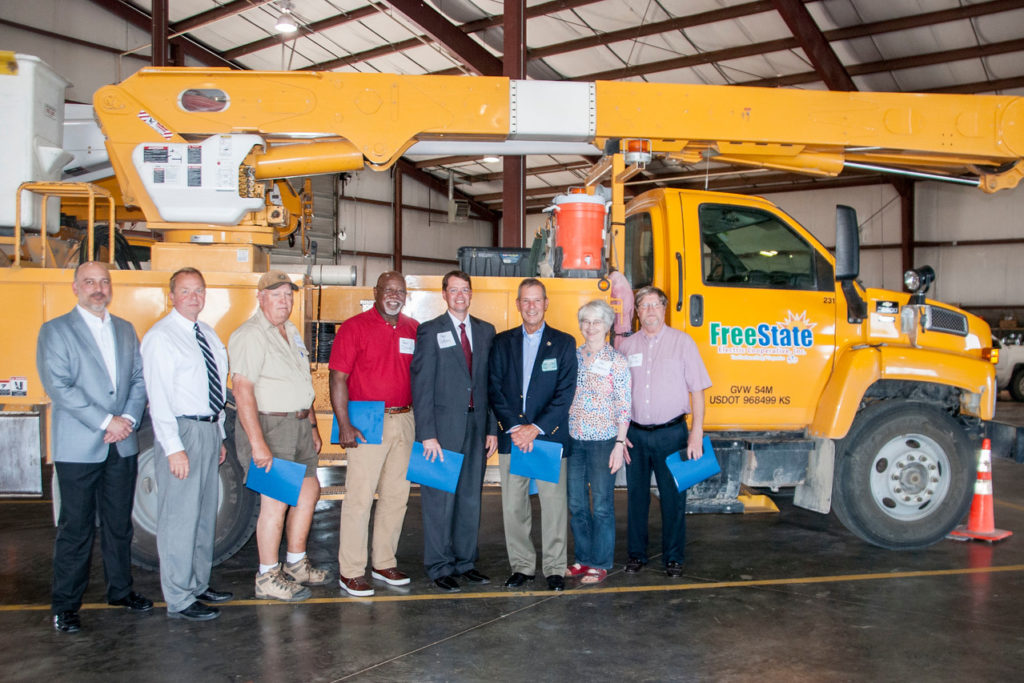
Were your state representative and the leadership of your state House determined by the luck of a draw?
Such was the case in a Virginia district race that made national headlines and commonwealth history.
The tied election in Virginia’s Tidewater area—and control of the House of Delegates—was settled on Jan. 4 when the chairman of the State Board of Elections reached into a ceramic bowl and drew a candidate’s name.
“This season of special elections and challenges to extremely tight races, like in Virginia, reminds us that every vote counts,” said Laura Vogel, NRECA senior adviser, political affairs. “NRECA is grateful for member participation in its Co-ops Vote program and is encouraging electric cooperatives to meet new goals for keeping members engaged in 2018. We have a tremendous opportunity this year to ensure that rural issues are part of the political discussion.”
NRECA offers electric co-ops across the country easy ways to inspire members to get to the polls and win recognition through its Co-ops Vote 5-Star program.
Adding the Vote.coop link to your co-op website, inviting elected officials to tour your co-op facility, hosting a meet-and-greet with candidates or elected officials, placing Co-ops Vote ads in newspapers and promoting the campaign on social media are among the many recognized activities.
Member involvement in upcoming elections remains at the forefront at co-ops in Kansas, where rural communities present their own challenges.
“In Wyandotte County on an average night, 5,187 people pay to see a minor league T-Bones baseball game, which is greater than the number of residents within the borders of 37 separate counties in Kansas,” said Bruce Graham, CEO of Kansas Electric Cooperatives in Topeka.
Wyandotte and Johnson counties surround the highly populated Kansas City metropolitan area and are home to 32 of the 125 state House members and 11 of the 40 state senators. Meanwhile, the western population of the state remains extremely low, he noted. “In fact, there are more legislators in the Kansas City area than represent the entire western half of the state.”
But that has not deterred Kansas co-ops. “I was amazed by the enthusiasm and engagement of our members. We had 27 of 28 Kansas cooperatives easily earn 5-Star Co-op status,” said Graham.
Huge turnover in the Kansas Legislature in 2016—when at least 60 incumbent legislators were retiring from the 165 open seats in the House and Senate—prompted the statewide to work with co-op members to build those grasstops relationships and participate in Co-ops Vote, he said.
Co-op employees and directors enjoyed more one-on-one interactions at meet-and-greets with candidates and elected officials that often included a tour and a demonstration of lineworker gear.
“All of them included a presentation of the cooperative principles, an explanation of our not-for-profit status, and other unique cooperative features,” said Graham.
Now the co-ops are preparing for a Co-ops Vote day at the Kansas State Capitol Feb. 7, which will include a breakfast for legislators and visits to their offices and committee meetings.
“We will continue to organize events in the same format as 2016 and 2017, which will be important in the 2018 election cycle,” said Graham.
Late last fall, a dozen co-ops in the state held seven events attended by 35 elected officials. Earlier in the fall, 44 elected officials toured 20 co-op facilities and met with employees at Co-ops Vote events, he said.
During the 2017 legislative session, eight co-ops organized visits to the Kansas Statehouse and met with leadership, committee chairs and lawmakers elected from their service territories. Throughout the presidential election year, 27 Kansas co-ops held meet-and-greets with state and local candidates and those audiences added together surpassed 1,000.
“Even though these were political events, we avoided partisanship. We made sure they knew that our interest was in a government that works,” Graham said.
“We also wanted them to know that our work is not done. Rural electrification isn’t something we did; it is something we are doing. Making a difference isn’t something we did; it is something we are doing.
“These events should be held regardless if you have a legislative issue or not, it’s about getting more rural people engaged and that you can be a trusted information resource.”
Learn more about the Co-ops Vote 5-Star program (cooperative.com credentials required)
Cathy Cash is a staff writer at NRECA.